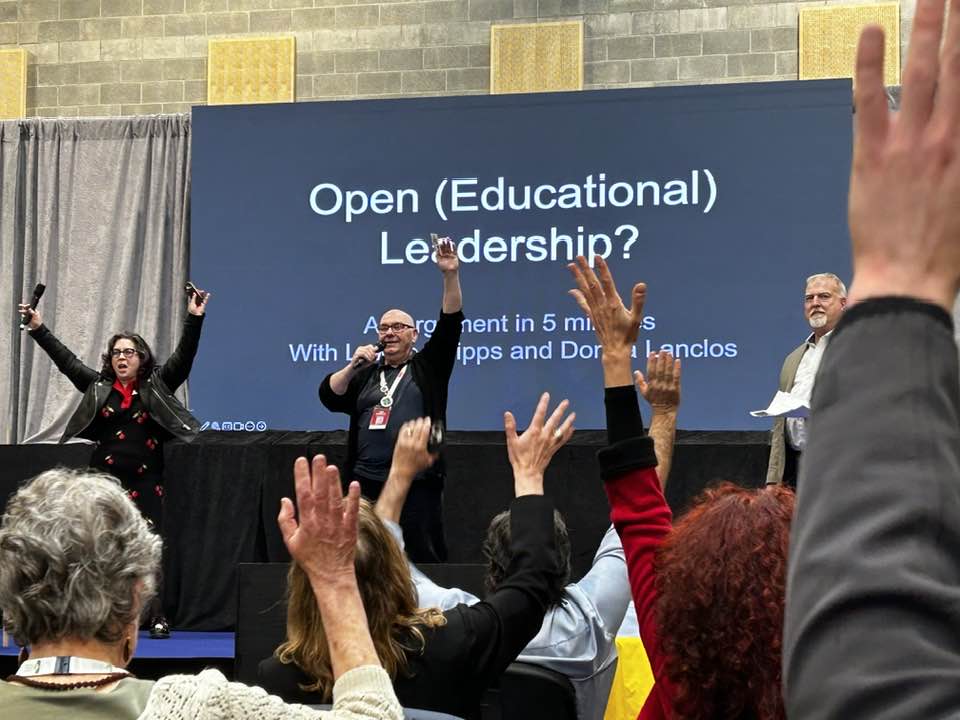After a long buildup to OER24, participating in planning, paper reviewing, logistics from afar, it happened! The TEL team at MTU and the ALT conference committee made it happen, and it was fantastic. We are pleased and proud to be affiliated with TEL at MTU and to get to work with the entire marvellous team of people, each of whom are leaders in their own right. And now that it’s over, we get to read everyone’s reflections as they share them. Here are some of our own.
What stood out at OER24? Well, everyone will probably be writing up their presentations and workshops (just as we are with our GASTA)–just search LinkedIn and the other socials for #OER24. One outstanding thing was the welcome in Cork, and on the MTU campus. We’re lucky to know the campus and the team a little, but chatting online, and talking about the conference, is very different to when 200 pairs of boots land on campus for a major international conference.
Another standout day at OER24 in Cork City was the one where it rained, then snowed, then hailed, then sleeted, and then rained again. (we did also see the sun! That day was just a pretty spectacular display of precipitation types)
A haon (ah hain) – a dó (ah dough) – a trí (ah tree) – a ceathair (ah cah-her) – a cúig (ah coo-ig)
GASTA!

Lanclos vs Phipps, who will win??
For OER24 we, Lanclos and Phipps, decided to argue about the idea of open educational leadership. Obviously, there are a lot of areas that we could unpick but we decided to choose 5 themes (…we only had 5 minutes…)
You can see the Gasta-as-argument on YouTube here– but that was a performance, and we wanted to elaborate a bit on the themes we touched on at OER24.
The themes were:
- Trust
- Crisis
- Innovation
- Governance
- Evidence-based decision-making
In most hierarchies, trust is often confined within established power structures, with decision-making being opaque to many outside leadership roles. Open leadership challenges this by advocating for transparency and inclusivity, fostering a culture where trust is distributed across the entire institutional community. Developing trust in an open leadership culture suggests that when leadership actions are transparent and inclusive, trust within the wider institution can be enhanced. Without trust, it’s difficult for people in the organization to feel truly supported when they take risks, try different things, and sometimes do things that fail.
However, within organisations that are often steeped in hierarchical and closed governance structures, what is required, structurally and personally, to make possible a switch to embrace an open model where trust is a valued attribute?
Crisis often acts as a catalyst for change, and during a time of crisis, open leadership can be effective, as it allows for rapid innovation and adaptability. We would ask, can institutions afford to remain open in moments of extreme uncertainty? What risks are institutions taking when insisting on openness as a strategy in crises?
To what extent might openness expose leaders who are trying to deal with the crisis to vulnerabilities, given the need for swift and sometimes centralised decision-making, and the sometimes inevitable desire for accountability!
Open educational leadership can mean breaking from traditional models of innovation and change. It could be the basis for creating a culture of experimentation and risk-taking, encouraging leadership teams to embrace uncertainty. But how much innovation is too much, and at what point does the pursuit of the new risk undermining the stability and core mission of the institution? And ultimately, who takes credit for innovations that lead to success?
Shifting from closed to open governance means a fundamental shift in how decisions are made, who makes them, and who is accountable. If we have a more distributed and participatory approach to governance what could happen? Would the open governance structure slow decisions, or even create decisions that are the lowest common acceptable decision, where the worst of all worlds is the norm. How can open governance sustain the demands of educational leadership, and how might it reconcile with the need for timely and effective decision-making for the good of staff, students, and community members?
Evidence-based decision-making should be the foundation of educational leadership, with data and research guiding actions and policies. But leadership and education (among other things) involve humans, and that means emotions and experience are inevitably part of the process. In an open leadership model, the emphasis must be on evidence, rather than intuition-based decision making. What counts as “evidence” and what counts as “intuition” is also (often) entangled in power relations, where the experiences of vulnerable and minoritized communities often characterised as “intuition” or “anecdote” while those in power get to claim that their personal experiences count as “evidence.”
How should leaders navigate situations where evidence is conflicting or incomplete, at best? In the UK we saw the “evidence” for a “good Brexit” and yet here we are still waiting for the “sunlit uplands”.

Photo by Bonnie Stewart (L-R: Donna Lanclos, Tom Farrelly the Gasta-master, and Lawrie Phipps)
GASTA!
We did not offer answers in our Gasta (though we did offer a chance for audience members to vote), nor do we here. We are trying to create moments here where, when Open is offered as a mode (and sometimes a solution), we prompt the questions:
For whom?
And why?
And what if it doesn’t work?
These are questions that require attention to people, their motivations, and the institutional and personal cultures they come from and in which they are currently embedded. If Digital is People, Open is People, too.


[…] https://digitalispeople.org/oer24-in-the-real-capital-of-ireland – Donna Lanclos & Laurie Phipps […]